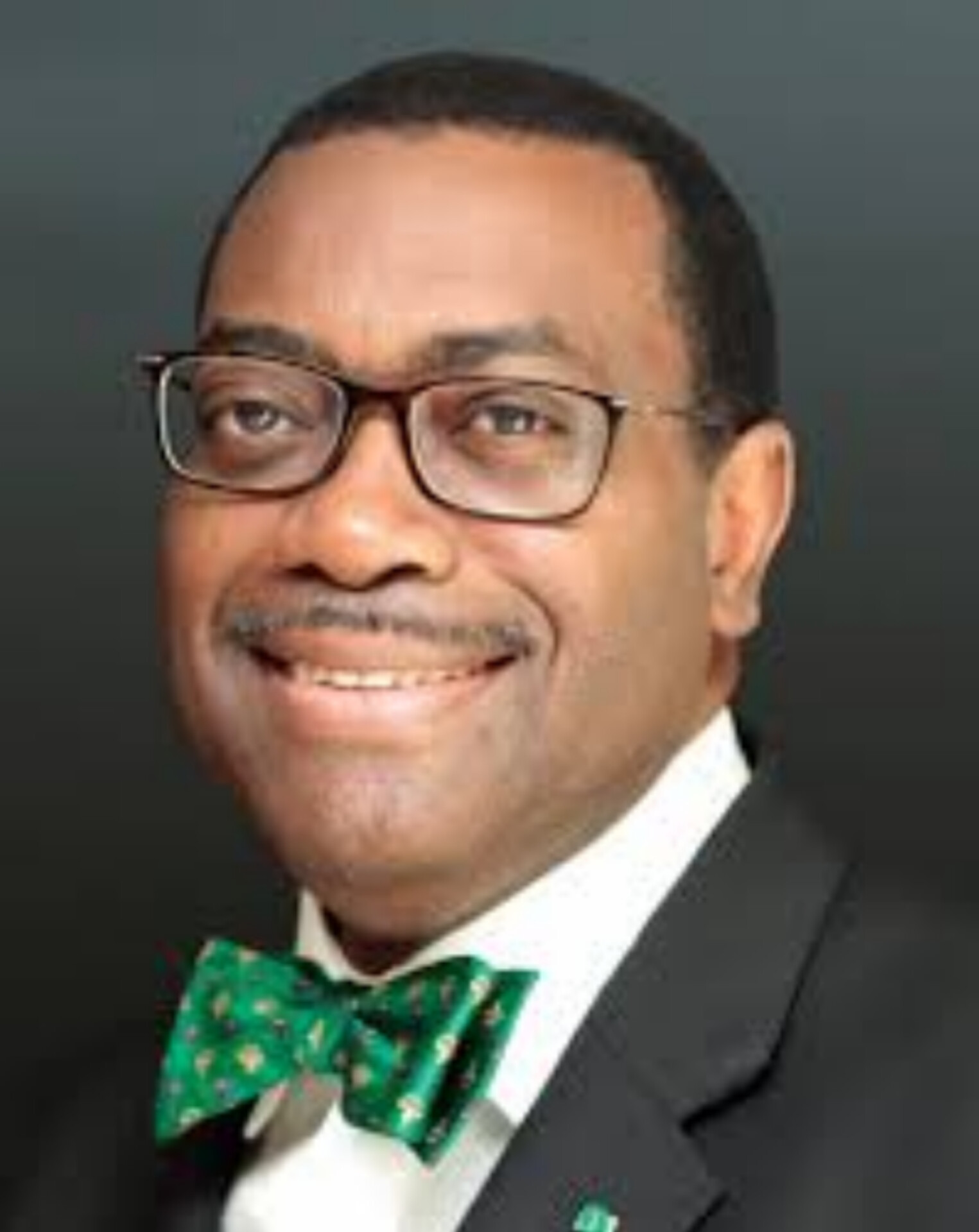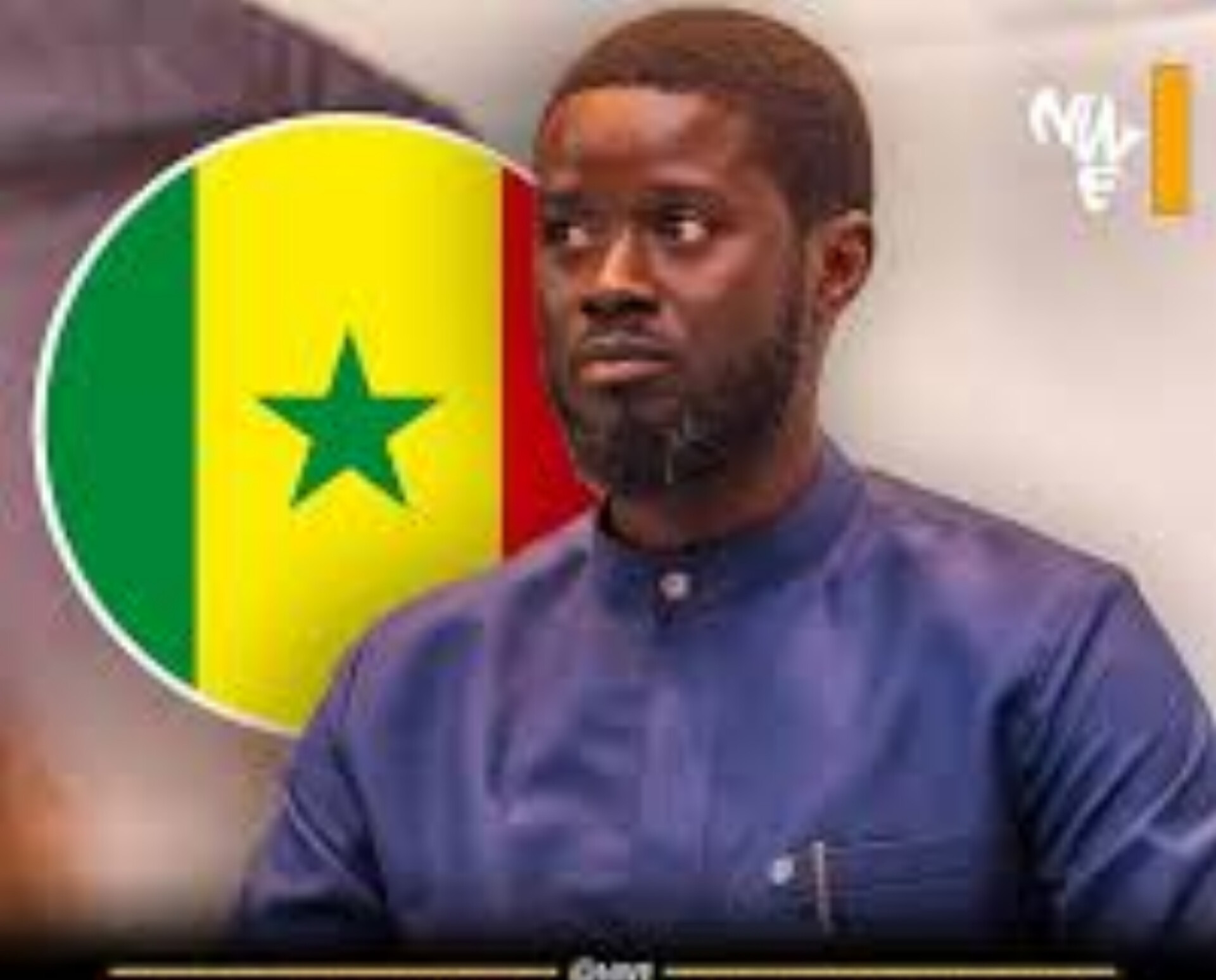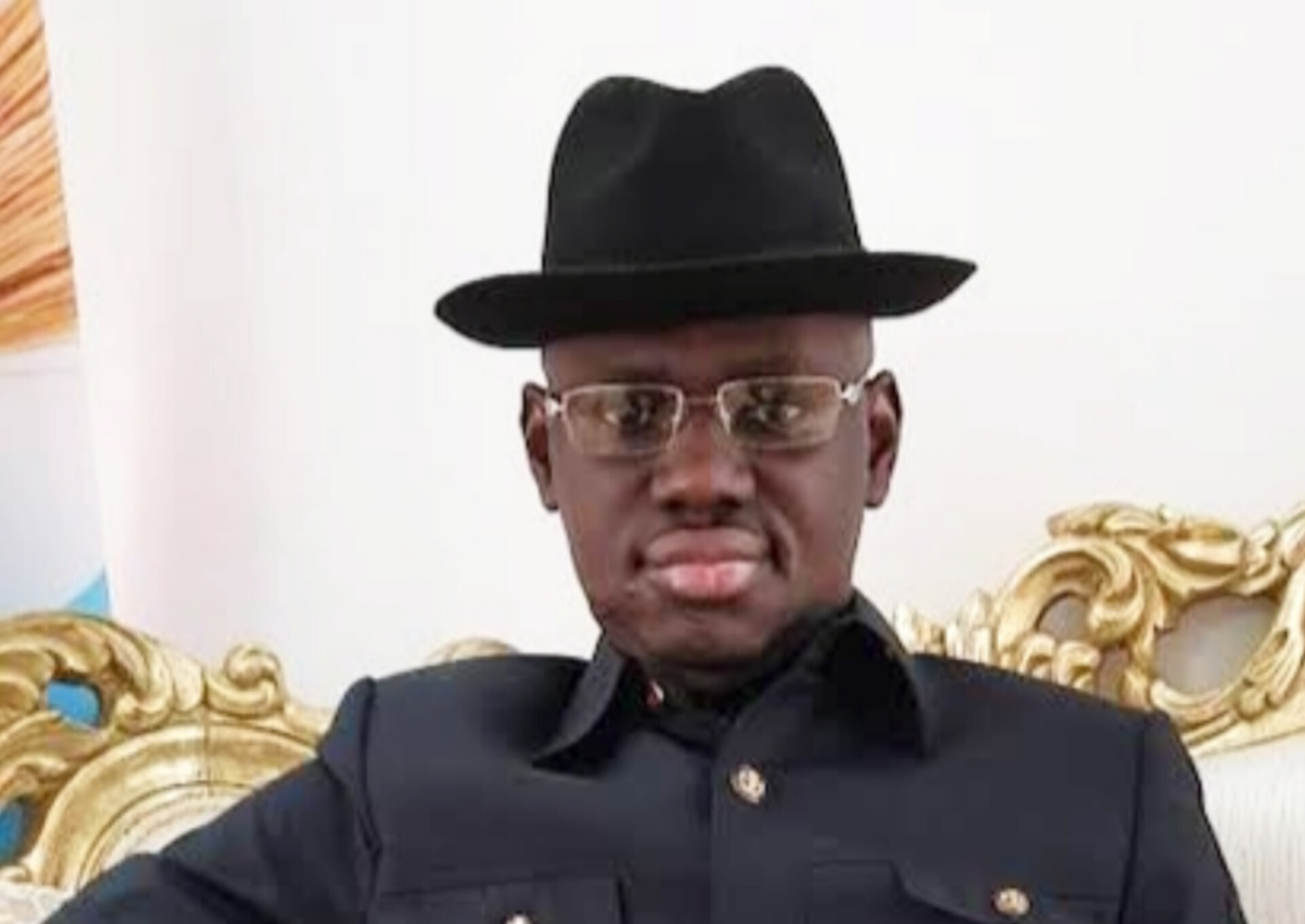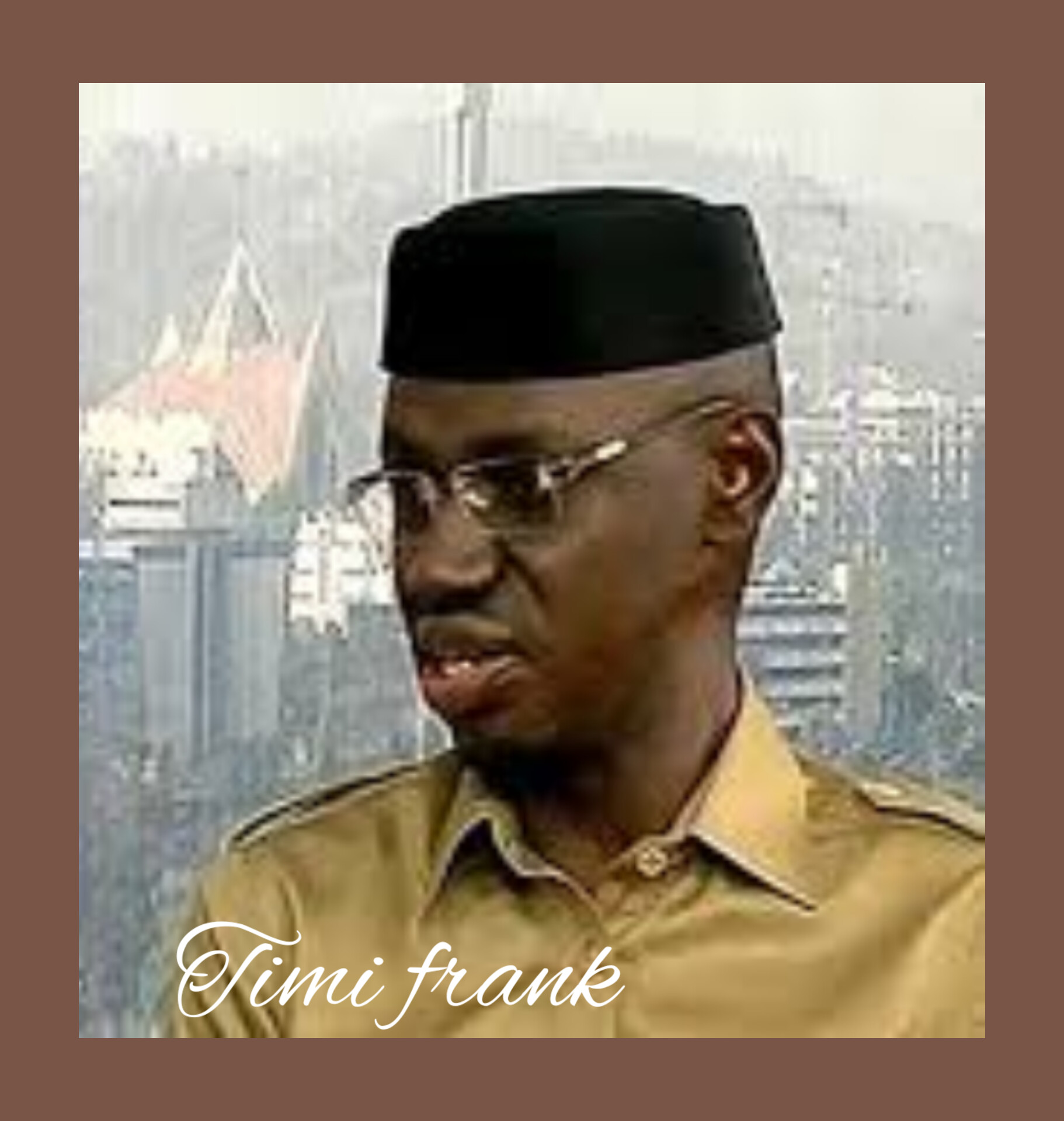Africa
‘Corruption is not an African issue’: bank chief says it’s time to believe in the continent’s future

In an exclusive interview, Akinwumi Adesina, head of the African Development Bank and ‘optimist-in-chief’, says the outlook is good for a continent with both the workers of the future and the best investment opportunities
Kenneth Mohammed
Africa holds the future workforce for the ageing economies of the west, according to one of the continent’s leading financial figures, who also said it was time to ditch the myths around corruption and risk.
In an exclusive interview before this weekend’s World Bank meetings in Morocco, Akinwumi Adesina said there was a resurgence of belief in Africa’s economic prospects and attacked negative stereotyping, adding that there was “every reason to be optimistic”.
Now midway through his second five-year term as president of the African Development Bank (AfDB), the Nigerian former agriculture minister said the continent’s demographic advantage, expanding middle class, and vast investment opportunities meant a shift was under way.
The global financial crisis that brought the world down in 2008 – that was not in Africa. We have no Wall Street
“And not before time – we’re tired of being at the bottom of the value chain,” Adesina said. “The fastest way to poverty is through exporting raw materials, but the highway to wealth is through global value chains by adding value to everything you have, from oil to gas to minerals to metals and food. We must add value.
“The issue is we have to invest right; we have to make sure the governance environment is right; we have to make sure the incentives are right. Africa must take a position that it is no longer going to be at the bottom but at the top.”
Established in 1964, the AfDB is Africa’s only AAA-rated financial institution, focused on what Adesina said were his “high fives”: enabling universal access to electricity, improving quality of life, industrialising, food self-sufficiency, and integrating the continent’s 54 countries to create larger and more efficient markets.
“I don’t think that you can have development with pride unless you can feed yourself,” he said.
Ghana’s Pokuase interchange, near Accra. Africa’s default rate on infrastructure projects is the lowest in the world, says Adesina. Photograph: Courtesy of AfDB
He said the record-breaking amounts attracted from international investors in the past few years pointed to a renewed trust in the bank’s ability to fast-track development across Africa, particularly in the 37 low-income countries.
“The 81 shareholders of the bank provided us with an increase in the bank’s capital at the end of 2019, from $93bn to $208bn [£76bn to £171bn] – the highest capital increase in the bank’s history. That was timely because little could we have imagined that we were going to move into the world of Covid.
“So that increase allowed us very quickly to do an emergency support facility of $10bn in Covid crisis response for Africa and to immediately respond when the global food crisis was coming from the Russia’s war in Ukraine. We launched a $1.5bn emergency food-production facility to mitigate that global geopolitical crisis leading to a food crisis in Africa.”
I’m an eternal optimist … Look at the numbers: Africa’s population is going to be 1.72bn by 2030. That’s larger than China, larger than India
But he does want the international financial systems to be structured fairer, so that African nations have as equal access as the developed nations to reserves and liquidity. Adesina will be taking his call for equity to this weekend’s World Bank summit.
“What is very important for us is the issue of the special drawing rights. Africa needs to have a lot more resources for financing climate, but what is actually out there it’s not enough. We have on the table right now the special drawing rights of the IMF. But when they were issued, US$650 billion were issued, Africa got US$33 billion. It’s 4.5%, it’s not good. You have small countries in Europe that got more and that is not fair and not inclusive.” With 190 member states in the IMF, Africa’s 54 countries should have been closer to receiving 25% of the special drawing rights.
“African heads of state are asking for US$100 billion to be re channelled from the countries that got it and don’t use it, or need it,” Adesina said, and he believes this could be key to real progress.
“We might think of maybe just adjusting it a little bit. And calling it supporting development revitalisation. That’s also SDRs.”
Corruption, he said, is actually less in Africa than other parts of the world. “The global financial crisis that brought the world down in 2008 – that was not in Africa,” he said. “We have no Wall Street.
“That collapse came from greed, from corruption, from fraud.
“You have people cooking the books that are in the financial industry in Europe, not in Africa. Corruption is not an African issue.
“The issue is, that’s not to say that there’s none. What you have to do is to continue to improve transparency, accountability and the use of public resources.
“I just came back from Eritrea. I hear a lot of things about Eritrea but my first time there and I was talking to UN Development Programme staff. You know what they told me? That, in Eritrea, corruption is 0%. Why do we not talk about that? That’s the kind of thing that we want to do. For us as a development bank, we take good governance very, very seriously.
“As far as I am concerned, people’s resources do not belong in other people’s pockets. Governments must be accountable to their people. There has to be transparency in how the resources are acquired and used. That’s why we have a governance programme. When you get money from us, we also support you technically. You are accounting for those resources.
“I don’t want to minimise that Africa has a significant amount of illicit capital flows; it does – anything between $80bn and $100bn a year. But guess what? Those that are doing that are the multinational companies. And so what we have got to do is bring a searchlight to that.”
However, the biggest challenge lay in the climate crisis, he said. “Africa today is losing $7bn to $15bn a year from climate change. And that’s going to rise to $50bn a year by 2030. Yet it receives only 3% of the global climate finance.”
The African climate summit in Nairobi last month was a “great success”, he said.
“For the first time, African countries got together to say we’re not going to talk about climate issues individually; we’re putting forward African issues collectively. That itself was a success.
“I made a case at the summit that Africa’s wealth should be revalued based on the value of its natural capital; if you did that, these countries that are currently rich in natural capital, but are cash poor, will become richer. Many people think the largest carbon lung in the world is the Amazon. But it is the Congo basin forest. Now, if Africa is providing this global good, why is it not accounted for in its GDP?
Climate crisis: Africa is talking but is the west listening?
“I’m an eternal optimist – they call me Africa’s optimist-in-chief – because look at the numbers: Africa’s population is going to be 1.72 billion by 2030. Seven years from now. That’s larger than China, larger than India. 477 million of those are young people, between 15 and 35. That’s a skilled workforce; that would be the labour, a workforce for the world.
“I can go into any country you have in Europe, or in Japan, and it’s a rapidly ageing workforce and they are looking for people. A skilled African population would be able to supply that. And when they do that, guess what: they put a lot of remittances back into the continent. So Africa is part of the solution of the lack of skills in the global labour market.”
He said renewable energy and agriculture were also growth opportunities. “Africa has 60% of the world’s solar power. That is an $100bn investment opportunity for Africa to become able to light up itself, but also to harness a renewable energy and reduce global emissions.
“Take food: the ability to feed the world by 2050 will not depend on the US or China, Japan or Europe, because 65% of the arable land left uncultivated in the world is in Africa. So what Africa then does with agriculture and how we all invest in agriculture will determine the future of food in the world.
A Carnegie Mellon University Africa robotics project in Kigali, which has been financed by the African Development Bank as part of Rwanda’s ambitions to become an educational stronghold in information and computer technology. Photograph: Courtesy of AfDB
“Also, take a look at other opportunities that Africa has: mobile money services, financial services – there’s tremendous growth. If you look at the number of people using mobile phones in Africa: 650 million. That is larger than the US and Europe together, and when you look at the financial services – whether mobile phone or e-health, insurance, digital payments – a revolution has happened in Africa.
“You have $701bn just from digital payments in the world – 70% of digital payments in the world happening in Africa.
“I go out and I see young people in the fintech industry that are leading today globally. So, my optimism, it’s realistic.
“Take a look at electric vehicles. Guess what: the metals for all of that are in Africa. Africa has 80% of the world supply of platinum, 50% of copper, 40% of manganese. Huge amount of lithium all about.
“We want to have investors globally investing. We have to make sure the governance environment is right, that incentives are right.
“Don’t just believe what I say, believe what the data says. Bloomberg did an analysis of the default rates on infrastructure globally over the past 14 years, around the world. Guess what they found: Africa’s default rate is the lowest in the world – 2.1%. Eastern Europe: well over 10%. Asia: well over 8%.
“We’re doing everything we can to make sure investments can land in Africa, like a plane on a smooth landing strip.”
Culled from TheGuardian
Africa
Timi Frank sends congratulatory message to Senegal’s President-elect, Bassirou Faye

Former Deputy National Publicity Secretary of the All Progressives Congress (APC), Comrade Timi Frank, on Thursday, sent a message of congratulations to President-Elect of Senegal, Mr. Bassirou Faye, on his victory at the polls.
Frank in a statement in Abuja, urged the incoming Senegalese President to prioritise the welfare, interest and empowerment of the youths of Senegal during his tenure.
He urged him be an exemplar of the rich ideas, innovativeness and transformative energy of youths in Africa and beyond by not disappointing the people of Senegal that elected him
Frank said: “We urge you to put the interests of the youths of Senegal first before any other consideration. Work hard to show that the youths can also be relied on in the continent.
“Make sure you keep to your campaign promises and be a good ambassador of not just the youths of Senegal but the entire continent. Besides, Don’t betray opposition leader, Ousmane Sonko, since you are now the ultimate beneficiary of his struggles, political persecution and imprisonment.
“Never forget that the sacrifices he made contributed immensely in your emergence as Senegal’s incoming President. Above all, work with all positive and progressive forces in Senegal to build the country.”
He added: “I most earnestly enjoin you, on assumption of office, to immediately release all political detainees incarcerated by Mr. Sall. Also ensure that all those that died during the struggle to defend the country’s constitution and democracy are accorded special honour by remembering their families.”
Frank who is the United Liberation Movement for West Papua (ULMWP) to East Africa and Middle East, said he is particularly gratified for lending his voice in support of the struggle that led to the eventual victory of the opposition when ex-President Marky Sall was oppressing and suppressing the movement.
He said: “Recall that about two months ago, precisely on February 7, 2024, I had in a statement condemned President Macky Sall, for postponing the presidential election earlier scheduled for February 25.
“I had equally called on the governments of the United Kingdom, United States of America and the European Union to place a visa ban on Sall over his attempt to derail democracy in Senegal.”
He called on security agencies and electoral bodies in other African countries to learn what it means to conduct a peaceful, free, fair and credible elections from Senegal.
“It is our hope that Nigeria’s electoral body, security agencies and similar institutions in other countries within the continent will learn from Senegal how to conduct free, fair and credible elections.
“We expect every other country to borrow a leaf from Senegal’s sterling example because peaceful election is the only antidote to post election crisis and violence and with losers having no option but to concede defeat.”
Africa
Cold blooded murder of Chad’s opposition leader is condemnable, says Timi Frank

***Tells AU, US, UK to restore rule of law, ensure freedom for political detainees
The recent cold blooded murder of Chadian opposition politician, Yaya Dillo, by state security forces had been strongly condened by the former Deputy National Publicity Secretary of the All Progressives Congress (APC), Comrade Timi Frank
The death of opposition leader Dillo came after a siege on his house and the houses of other top officials of the opposition Socialist Party Without Borders in N’Djamena on Wednesday.
Frank who condemned the action in a statement in Abuja, said even though the Chadian government had claimed that Dillo was among several people killed when he allegedly led an attack on the National State Security Agency (ANSE) in the capital, N’Djamena, it has become clear that his death was politically orchestrated by the junta ruling the landlocked country in north-central Africa.
He urged the African Union (AU) and Chad’s neigbour, Nigeria, to intervene to stop further killings by the junta, restore democratic rule and free all political prisoners in the country.
He said it has become expedient to prevent continuous bloodletting and possible outbreak of insurrection in the country capable of destabilising other countries across its borders with incidence of refugees, attendant chaos ans political instability.
He said it was better for the leaders of AU and the Economic Community of Central African States (ECCAS) and the Economic Community of West African States (ECOWAS) to act now to stabilize the country instead of waiting to close the stable door when the horse has bolted.
He called on the United States of America (USA), United Kingdom (UK) and right thinking leaders of the European Union to prevail on France to cease stoking the fires of internecine wars, political instability and military rule in Chad and other Francophone countries – for their selfish economic gains- but allow democratic rule to take root and thrive.
He also enjoined the Chairman of ECOWAS, President Bola Tinubu, to take responsibility by ensuring that the present political turmoil in Chad is resolved ahead of its May 6th Presidential election.
According to Frank who is the United Liberation Movement for West Papua (ULMWP), Ambassador to East Africa and Middle East, Dillo, 49, was current military President Mahamat Idriss Deby Itno’s cousin and a strong contender in the polls.
“If there is outbreak of armed hostilities between opposition and military-led security forces, Nigeria’s northern states would be awash with refugees and inflow of small and light weapons that may further worsen the security situation in the Lake Chad region,” he said.
He noted that political killings and human rights abuses skyrocketed in Chad after military take over following the death (killing) of the nation’s former President, Idris Deby in 2021 and the installation of his son Mahamat as leader.
He said even though the junta led by Deby’s son, Mahamat, earlier fixed an 18-month transition period to conduct elections, the timeline was unilaterally shifted to three years by the junta during which it has criminally amended the country’s constitution to allow the interim leader and head of the military transition council, President Mahamat Idriss Deby Itno, to participate.
He accused the head of junta, Itno, of being directly responsible for mass killings, persecution of opposition figures and the incarceration of key political opponents including his uncle (his father’s younger brother).
He said: “He keeps spreading fear in the country to maintain his hold on power. He has become a dictator and tyrant who loathes any form of opposition. France is aware of his atrocities but keep backing him in exchange for free access to exploit the nation’s mineral resources. “
He equally called on the International Community to prevail on Mahamat to release all political detainees, revert to the old constitution and allow the conduct of a free, fair and credible poll to choose the country’s next President.
Above all, he called on the International Criminal Court (ICC) to investigate and prosecute Mahamat for crimes against humanity over the killing of the opposition politician Dillo, and others who have disappeared, died or imprisoned by the military junta.
Africa
Zimbabwe election: Timi Frank tackles AU, ECOWAS for silence over fraudulent outcomes

***warns that electoral coups always snowball into military coups
The alleged rigging of Presidential election in Zimbabwe by the ruling ZANU-PF party has been condemned by former Deputy National Publicity Secretary of the All Progressives Congress (APC), Comrade Timi Frank
Frank in a statement in Abuja, also accused the Heads of State and Governments of the African Union and indeed the Economic Community of West African States (ECOWAS) of eerie silence in the face of electoral injustice being meted on the opposition presidential candidate in Zimbabwe widely believed to have won the election.
Frank indicated that such electoral coups in the form of rigging often snowball into military coups and violent change of governments because of discontent and deep seated anguish of the people who have been denied the right to freely choose who to lead them by fraud and force.
He insisted that Zimbabwe’s President Emmerson Mnangagwa was declared winner in questionable circumstances following widespread irregularities orchestrated by the ruling party in instilling fear and suppression of votes in opposition strongholds.
He noted that candidate of the opposition Citizens Coalition for Change (CCC), Nelson Chamisa, was robbed of votes as attested by international observers and South African Regional body that monitored the election.
According to him, foreign poll monitors insisted that the elections had failed to meet regional and international standards just like the outcome of the February 25, 2023 presidential election in Nigeria that failed on all parameters due to overbearing influence of the ruling party and its use of financial inducements, intimidation and harassment of opposition and voters to deny Nigerians of their rightful choice.
The head of the European Union’s observer mission said the vote took place in a “climate of fear”, while Southern African regional bloc SADC’s mission raised issues including voting delays, issues with the voter roll, bans on opposition rallies and biased state media coverage.
“For example, voting was forced into an unprecedented second day because of delays in the printing of ballot papers in some key districts including the capital Harare, an opposition stronghold principally to deny Chamisa of votes,” he said.
He condemned a situation where African ruling parties are increasingly violating the electoral rights of the opposition parties and their candidates through rigging saying the trend will continue if measures are not taken to make African Heads of States to respect the sanctity of the ballot box.
He urged regional political blocs like the AU and ECOWAS to urgently call the President of Zimbabwe to order as a step towards curbing coup d’état now rearing its ugly head in many Africa countries like the recent one in Niger Republic.
“This is what African leaders are doing that is leading to military coups in the continent of Africa. An electoral coup has just taken place where the sitting President has outrightly rigged the election against the expressed will of the people.
“But neither African presidents nor AU has condemned what has happened in Zimbabwe. But if there is a military coup in Zimbabwe tomorrow, they will all begin to issue war threats in a bid to restore democratic rule,” he said.
He called on the United States of America, United Kingdom and other international bodies, to
lend their voice to condemn the electoral heist in Zimbabwe if they are genuinely interested in ending coups in Africa.
“So we are telling the international community that until they come together to make sure that African elections are transparent, free and fair, coups will not end in Africa,” he declared.
He called for urgent international sanctions against the President of Zimbabwe, Emmerson Mnangagwa and any President that rigs election in Africa to fraudulently perpetuate themselves in office against the wish of the people.
“The United Nations must ensure that henceforth Presidents or heads of governments that were rigged into office are not invited to attend its General Assembly or any of its international gatherings,” he said.
-

 Crime6 months ago
Crime6 months agoPolice nabs Killer of Varsity Lecturer in Niger
-

 News3 months ago
News3 months agoFCT-IRS tells socialite Aisha Achimugu not to forget to file her annual returns
-

 Appointment7 months ago
Appointment7 months agoTinubu names El-Rufai, Tope Fasua, others in New appointments
-

 News From Kogi6 months ago
News From Kogi6 months agoINEC cancells election in 67 polling units in Ogori-Magongo in Kogi
-

 News From Kogi8 months ago
News From Kogi8 months agoEchocho Challenges Tribunal Judgment ordering rerun in 94 polling units
-

 News7 months ago
News7 months agoIPOB: Simon Ekpa gives reason for seperatists clamour for Biafra
-

 Metro1 month ago
Metro1 month ago‘Listing Simon Ekpa among wanted persons by Nigeria military is rascality, intimidation’
-

 News4 months ago
News4 months agoKingmakers of Igu/ Koton-Karfe dare Bello, urge him to reverse deposition of Ohimege-Igu

